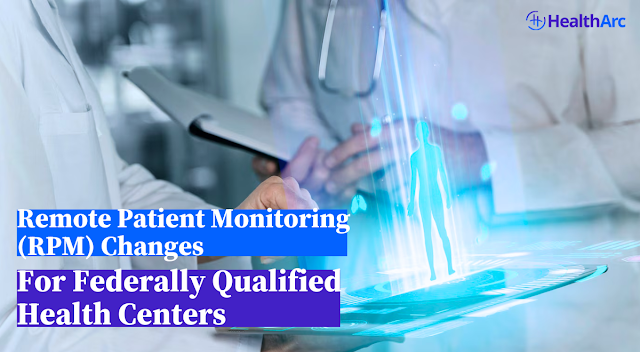Optimizing Patient Health with Medication Therapy Management (MTM)
Medication adherence and safety are critical components of effective healthcare. Many patients, especially those with chronic conditions, struggle to manage multiple medications, leading to adverse events, hospitalizations, and poor outcomes. Medication Therapy Management (MTM) is a patient-centered service designed to optimize medication use, improve adherence, and enhance overall health. By leveraging software, remote monitoring, and strict HIPAA compliance, MTM helps healthcare providers deliver safer, more effective, and coordinated care through robust care coordination.
What is Medication Therapy Management (MTM)?
MTM is a structured process where healthcare providers, typically pharmacists, review patients’ medications to ensure they are used appropriately, safely, and effectively. Key elements of MTM include:
Comprehensive medication review
Identifying and resolving medication-related problems
Creating personalized medication action plans
Providing education and counseling to patients
Collaborating with physicians and care teams
MTM is especially important for patients managing multiple chronic conditions or taking several medications simultaneously. By optimizing medication regimens, MTM reduces the risk of adverse events and improves therapeutic outcomes.
The Role of Software in MTM
Advanced MTM software platforms are central to delivering effective medication management. These systems provide:
Medication tracking and reconciliation: Ensures accurate medication lists across providers and care settings.
Patient engagement tools: Reminders, alerts, and educational resources to improve adherence.
Analytics and reporting: Identify high-risk patients, monitor adherence, and assess outcomes.
Workflow automation: Streamlines documentation, billing, and communication with care teams.
By integrating MTM software with Electronic Health Records (EHRs), providers gain a holistic view of patients’ medication history, enabling better coordination, safer prescribing, and improved patient outcomes.
Integrating Remote Monitoring in MTM
Remote monitoring enhances MTM by allowing providers to track patients’ medication adherence and relevant health metrics in real-time. Devices and mobile apps can monitor:
Blood pressure, glucose, or heart rate in relation to medication effectiveness
Patient-reported outcomes such as pain levels or side effects
Adherence to prescribed medication schedules
By integrating remote monitoring data with MTM software, care teams can detect early warning signs of non-adherence or adverse reactions, provide timely interventions, and adjust therapy plans proactively. This ensures medications are not only prescribed correctly but are effectively improving patient health.
HIPAA Compliance in Medication Therapy Management
Since MTM involves sensitive patient data, HIPAA compliance is critical. MTM platforms must include:
Secure data storage and transmission with encryption
Role-based access controls to ensure only authorized personnel can view patient information
Audit trails to track access, updates, and interventions
Patient consent management to maintain privacy and transparency
HIPAA-compliant MTM systems protect patient privacy, build trust, and ensure providers meet regulatory standards while delivering care.
Benefits of Medication Therapy Management
Implementing MTM with integrated software and remote monitoring provides multiple advantages:
Improved Medication Adherence: Patients receive reminders and education to follow their treatment plans accurately.
Enhanced Patient Safety: Identification and resolution of medication-related problems prevent adverse events.
Better Health Outcomes: Optimized therapy improves disease management and overall patient health.
Efficient Care Coordination: Centralized platforms streamline communication between pharmacists, physicians, and care teams.
Cost Reduction: Preventing adverse events and hospitalizations reduces healthcare costs.
Latest Trends in MTM
MTM is evolving with the integration of technology and digital health solutions:
Telepharmacy and Telehealth: Virtual consultations allow pharmacists to provide counseling and medication reviews remotely.
AI and Predictive Analytics: Identify patients at risk for non-adherence or drug interactions.
Mobile Health Apps: Encourage patients to track medications, report side effects, and communicate with providers.
Interoperable Platforms: Seamless data sharing between EHRs, MTM software, and remote monitoring devices enhances care coordination.
These innovations make MTM more proactive, personalized, and effective in managing patient medications.
Conclusion
Medication Therapy Management (MTM) is essential for optimizing medication use, improving adherence, and enhancing patient safety. Through advanced software, remote monitoring, and strict HIPAA compliance, MTM empowers providers to deliver patient-centered, coordinated, and effective care. Patients benefit from safer, more personalized therapy, while providers gain actionable insights, streamlined workflows, and improved outcomes.
As healthcare embraces digital solutions, MTM stands out as a critical tool for improving chronic disease management, reducing adverse events, and supporting a more proactive, technology-driven approach to medication therapy.
.png)


%20Changes%20for%20Federally%20Qualified%20Health%20Centers%20(1).png)
Comments
Post a Comment